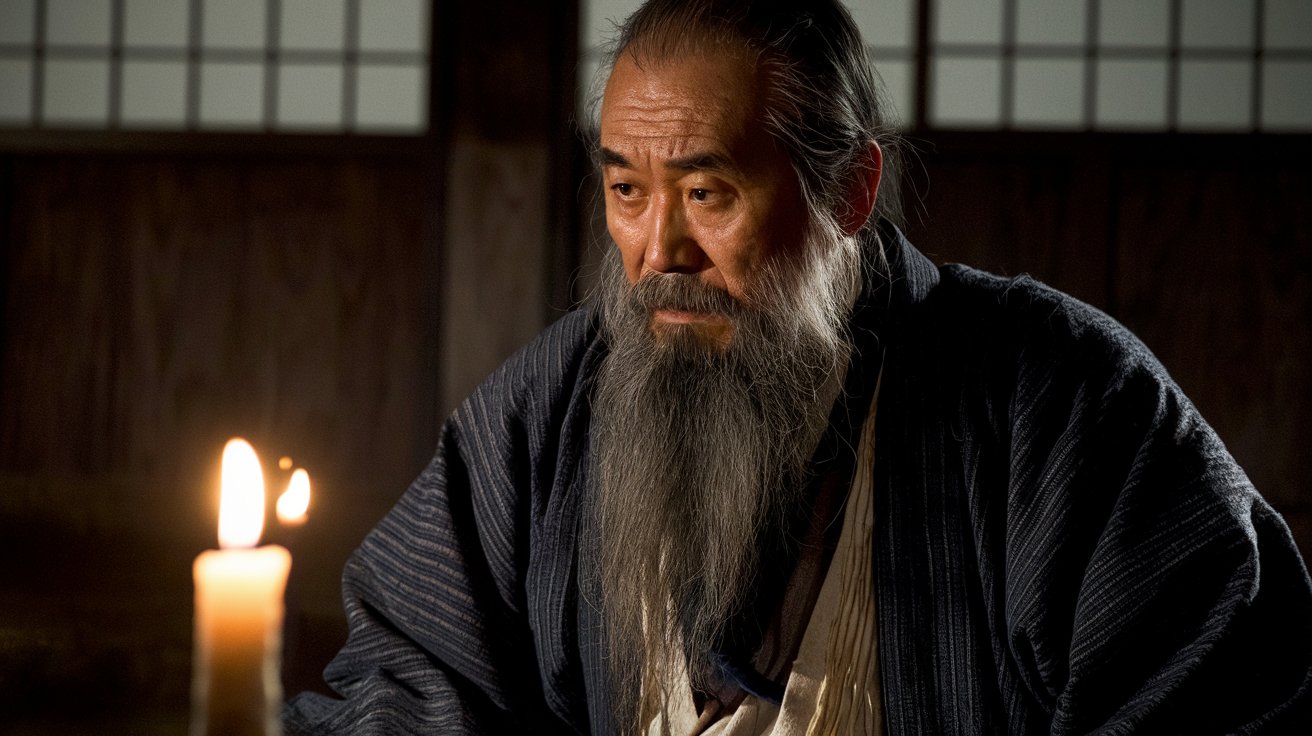
Who was Hattori Hanzo? Hattori Hanzo, also known as Hattori Masanari, was a legendary samurai and ninja of the Sengoku period in Japan. Born in 1542, he served the Tokugawa clan and played a crucial role in the unification of Japan. Known for his exceptional skills in martial arts, espionage, and guerrilla warfare, Hanzo became a symbol of loyalty and bravery. His legacy lives on in popular culture, inspiring countless movies, books, and video games. Whether you're a history buff or a fan of samurai lore, learning about Hattori Hanzo offers a fascinating glimpse into Japan's rich past.
Key Takeaways:
- Hattori Hanzo, a legendary samurai and ninja, was known for his exceptional skills, loyalty, and strategic mind. His legacy continues to inspire storytellers and artists in modern popular culture.
- Hanzo's life was filled with rigorous training, loyalty to the Tokugawa clan, and mastery of weaponry and armor. His influence can be seen in various aspects of Japanese culture and history.
Who Was Hattori Hanzo?
Hattori Hanzo, a legendary samurai and ninja, has fascinated people for centuries. Known for his skills, loyalty, and cunning, Hanzo's life is filled with intriguing details.
- Hattori Hanzo was born in 1542 in Iga Province, Japan.
- His full name was Hattori Masanari, but he earned the nickname "Hanzo" due to his exceptional skills.
- He served the Tokugawa clan, one of the most powerful families in Japan.
- Hanzo was a master of kenjutsu, the art of swordsmanship.
- He also excelled in ninjutsu, the techniques of stealth and espionage.
Hanzo's Early Life and Training
Hanzo's early years were marked by rigorous training and discipline. His upbringing in Iga Province, a region known for its ninja clans, played a crucial role in shaping his abilities.
- Hanzo began his training at a young age, learning various martial arts and survival skills.
- He was trained by his father, Hattori Yasunaga, who was also a renowned ninja.
- Hanzo's training included mastering the use of various weapons, such as shuriken and kunai.
- He also learned the art of disguise, enabling him to blend into any environment.
- Hanzo's training emphasized the importance of mental discipline and strategic thinking.
Hanzo's Role in the Tokugawa Clan
Hanzo's loyalty to the Tokugawa clan was unwavering. His skills and dedication made him an invaluable asset to the clan's leader, Tokugawa Ieyasu.
- Hanzo played a key role in the Battle of Mikatagahara in 1573, helping to secure a victory for the Tokugawa clan.
- He was instrumental in the rescue of Tokugawa Ieyasu's family during the Siege of Odawara in 1590.
- Hanzo's strategic mind and combat skills earned him the title of "Devil Hanzo."
- He was appointed as the head of the Tokugawa clan's ninja forces.
- Hanzo's loyalty and service to the Tokugawa clan were rewarded with land and titles.
Hanzo's Legacy and Influence
Hattori Hanzo's legacy extends beyond his lifetime. His influence can be seen in various aspects of Japanese culture and history.
- Hanzo's name became synonymous with loyalty, bravery, and skill.
- He is often depicted in Japanese literature, films, and television shows.
- Hanzo's techniques and strategies are still studied by martial artists and historians.
- The Hattori Hanzo Shrine in Saitama, Japan, is dedicated to his memory.
- Hanzo's story has inspired countless fictional characters, including the famous swordsmith in Quentin Tarantino's "Kill Bill" series.
Hanzo's Death and Mythology
The circumstances surrounding Hanzo's death are shrouded in mystery, adding to his legendary status.
- Hanzo died in 1596, but the exact cause of his death remains unknown.
- Some accounts suggest he was assassinated, while others claim he died of natural causes.
- Hanzo's death marked the end of an era for the Tokugawa clan's ninja forces.
- His son, Hattori Masanari, succeeded him and continued to serve the Tokugawa clan.
- Hanzo's legacy lived on through his descendants, who maintained the family's ninja traditions.
Hanzo's Weapons and Armor
Hanzo's expertise in weaponry and armor was unparalleled. His choice of weapons and armor reflected his skills and strategic mind.
- Hanzo was known for wielding a katana, a traditional Japanese sword.
- He also used a naginata, a pole weapon with a curved blade.
- Hanzo's armor was designed for both protection and mobility.
- He often carried a tanto, a small dagger, for close combat.
- Hanzo's weapons were crafted by skilled artisans, ensuring their quality and effectiveness.
Hanzo in Popular Culture
Hattori Hanzo's influence extends to modern popular culture, where he is often portrayed as a symbol of strength and cunning.
- Hanzo has appeared in numerous video games, including the "Samurai Warriors" and "Nioh" series.
- He is a popular character in manga and anime, such as "Ninja Hattori-kun."
- Hanzo's name is used for a character in the "Overwatch" video game.
- His story has been adapted into various films and television dramas.
- Hanzo's legacy continues to inspire new generations of storytellers and artists.
The Legacy of Hattori Hanzo
Hattori Hanzo's life and deeds have left an indelible mark on history. Known for his exceptional ninjutsu skills and loyalty, Hanzo's legacy continues to captivate enthusiasts of samurai and ninja culture. His contributions to the Tokugawa shogunate and his legendary status as a master swordsman have cemented his place in Japanese folklore.
Whether it's his daring missions, his role as a bodyguard, or the myths surrounding his abilities, Hanzo's story is a testament to the rich tapestry of Japan's feudal era. His influence extends beyond history books, inspiring countless films, books, and even video games.
By exploring Hanzo's life, we gain a deeper appreciation for the complexities and heroics of samurai culture. His story reminds us of the enduring power of loyalty, skill, and the human spirit.
Frequently Asked Questions
Was this page helpful?
Our commitment to delivering trustworthy and engaging content is at the heart of what we do. Each fact on our site is contributed by real users like you, bringing a wealth of diverse insights and information. To ensure the highest standards of accuracy and reliability, our dedicated editors meticulously review each submission. This process guarantees that the facts we share are not only fascinating but also credible. Trust in our commitment to quality and authenticity as you explore and learn with us.


